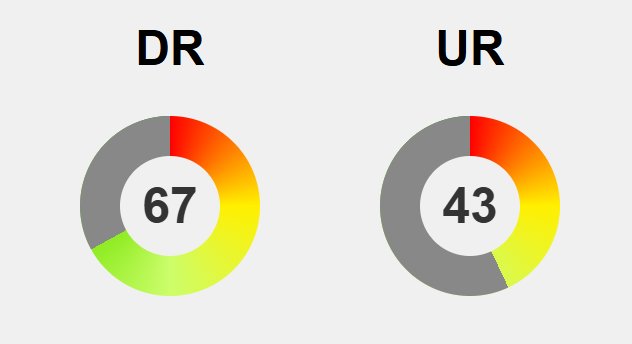Friedrich Nietzsche’s fierce rebellion against traditional values and his revolutionary ideas on individualism continue to challenge, inspire, and provoke us, shaping the very fabric of modern thought and culture. Born into a conservative religious environment, Nietzsche’s journey was one of relentless questioning—rejecting inherited morals, dogma, and societal norms to forge his own path. His philosophy urges us to embrace chaos as a catalyst for growth, question authority, and live authentically. From influencing psychology and literature to inspiring social movements and personal development, Nietzsche’s call for self-overcoming remains profoundly relevant today. But how does his critique of morality and the concept of the Übermensch push us to redefine freedom, purpose, and identity in a world awash with uncertainty? His legacy invites us to live boldly, continuously challenge our beliefs, and craft lives rooted in authenticity—transforming chaos into a fertile ground for personal and cultural evolution.
Nietzsche’s Rebellion: Challenging Tradition and Inspiring Transformation
Friedrich Nietzsche stands out as one of the most provocative and revolutionary thinkers in modern philosophy. He didn’t merely challenge a few ideas; he dismantled the very foundation of traditional values, urging us to question everything we’ve been told about morality, religion, and societal norms. His work pushes beyond critique—it’s a call to think independently and forge personal paths amid the chaos of life. This rebellious spirit isn’t just philosophical; it’s a powerful invitation to cultural and individual transformation that continues to resonate today.
Nietzsche’s influence extends far beyond the realm of philosophy. His ideas have reshaped fields like psychology, literature, and even popular culture. By exposing the constructed nature of morality and authority, he encouraged a shift toward individual authenticity and freedom. His critique of societal conventions opened the door for new ways of living—ways that prioritize self-creation and resilience over conformity. Nietzsche’s call to question authority and embrace personal strength remains a vital force shaping contemporary thought and cultural movements.
At the core of Nietzsche’s philosophy is a challenge to the very foundations of inherited beliefs. His rejection of religious dogma and moral orthodoxy was revolutionary, but it was also deeply personal. He believed that true freedom comes from within—by questioning external authorities and cultivating one’s own values. This stance inspired a vision of human potential rooted in self-overcoming, resilience, and the relentless pursuit of authenticity. Nietzsche’s philosophy invites us to see chaos not as a threat, but as an essential catalyst for growth and self-discovery.
What makes Nietzsche’s impact enduring is how his ideas continue to inspire individuals and movements that seek to break free from societal constraints. His emphasis on personal responsibility and the importance of creating meaning amid uncertainty resonates strongly in today’s world. Whether through art, politics, or personal development, his revolutionary outlook encourages a mindset of continuous questioning and reinvention. Nietzsche’s challenge to accept the world as given invites us to live more consciously and intentionally, forging our own destiny in the face of chaos.
Ultimately, Nietzsche’s rebellion is about more than philosophy; it’s a call to live boldly and think critically. His work urges us to question inherited truths, challenge societal norms, and embrace the chaos of life as a space for authentic self-expression. By doing so, we participate in a ongoing process of self-overcoming—continually pushing beyond limits to craft a life of purpose, passion, and independence. His revolutionary ideas remain a powerful blueprint for those committed to living freely and shaping the future with conviction.
From Faith to Freedom: The Evolution of Nietzsche’s Revolutionary Ideas
Friedrich Nietzsche’s journey into revolutionary philosophy began in a religious and conservative environment that shaped much of his early worldview. Born in 1844 in Röcken, Germany, he was raised by devout Lutheran parents, with his father, a pastor, passing away when Nietzsche was just five. This loss left him under the care of his mother and sister, who upheld strict religious traditions that seemed to stand in stark contrast to Nietzsche’s natural inclinations. From a young age, he was immersed in moral and spiritual expectations that he would later come to question and reject.
His education played a pivotal role in shaping his evolving ideas. Attending prestigious German schools, Nietzsche was introduced to classical philosophy and literature, especially the works of Arthur Schopenhauer. The emphasis on the will and perception resonated deeply, sparking his interest in human drives and the nature of reality. However, as his studies progressed, Nietzsche began to see the limitations in Schopenhauer’s outlook, prompting him to develop his own critiques of existing beliefs and values.
Throughout his early career, Nietzsche was influenced by the intellectual currents of his time, including scientific advancements and the rise of skepticism toward religion. These developments created fertile ground for his radical ideas. Initially holding conservative views, he gradually shifted toward a more revolutionary stance, challenged by the contradictions he observed between societal morals and personal authenticity. His experiences and readings fueled a desire to question and overthrow traditional moral codes, viewing them as constraints on human potential.
Works like *The Birth of Tragedy* reveal Nietzsche experimenting with concepts of cultural renewal and the importance of embracing chaos. He believed that life’s vitality depended on overcoming moral boundaries and tapping into primal instincts. Later writings, such as *Thus Spoke Zarathustra* and *Beyond Good and Evil*, deepen these themes, emphasizing self-overcoming and the creation of individual values. These texts mark moments where his revolutionary voice grew clearer, echoing a call for personal and cultural transformation.
Nietzsche’s internal conflict—his rejection of inherited authority and his quest for authenticity—drives the evolution of his philosophy. His early influences, rooted in religion, classical philosophy, and scientific skepticism, set the stage for his radical critique of morality and societal norms. His intellectual development was a gradual process, shaped by personal struggles and a desire to forge a new path free from conventional constraints.
In essence, Nietzsche’s development reflects a relentless questioning of inherited truths. His transition from a conservative upbringing to a revolutionary thinker was driven by a profound need to break free from oppressive norms and discover genuine self-expression. This evolution underscores his lifelong project of challenging the status quo, forging a philosophy that continues to inspire those who seek to live authentically amid chaos.
Nietzsche’s Philosophy in the Modern World: Shaping Thought and Culture
Friedrich Nietzsche’s ideas continue to resonate profoundly in today’s cultural landscape, shaping how we think about identity, freedom, and societal norms. His critique of traditional morality and authority encourages us to question inherited beliefs, fostering a more individualistic approach to life. In an age that prizes authenticity and self-expression, Nietzsche’s call to craft personal values amid chaos feels more relevant than ever.
Modern movements advocating for empowerment and rebellion draw inspiration from his emphasis on self-creation. His notion that morality is a human construct rather than divine truth fuels debates around secularism and moral relativism. When Nietzsche declared that “God is dead,” he opened space for a pluralistic society where individuals define their own purpose, unbound by external authorities. This idea continues to challenge and expand our understanding of moral and spiritual freedom.
Artists, writers, and thinkers keep drawing on Nietzsche’s challenge to conform. His concepts of chaos and the will to power have fueled creative movements that celebrate authenticity and push boundaries. From existentialists like Sartre to contemporary critics, his themes of power and self-overcoming shape discussions about societal norms and explore new ways of seeing the world. His influence sparks a continuous reevaluation of what it means to live freely.
In psychology, Nietzsche’s insights into the human psyche have helped inform theories of resilience and personal growth. His belief that inner conflict can lead to strength aligns with modern approaches to mental health, emphasizing confronting struggles as a pathway to self-overcoming. This perspective encourages us to see difficulties not as obstacles but as opportunities for growth and transformation.
Social movements fighting for freedom of thought and anti-conformity find a natural ally in Nietzsche’s critique of herd mentality. His advocacy for individual responsibility and authenticity supports efforts to challenge oppressive systems and promote diverse ideas. By encouraging people to craft their own values, his philosophy helps foster environments where genuine self-expression is valued and conformity is questioned.
In education and personal development, Nietzsche’s ideas inspire shifts toward fostering critical thinking and self-reflection. His emphasis on questioning authority and following passions aligns with cultivating resilience and curiosity—traits crucial for navigating today’s rapidly changing world. Embracing chaos as a source of growth empowers individuals to reinvent themselves continuously.
Engaging with Nietzsche’s philosophy today offers a compelling way to navigate complexity with confidence. His call to question norms, embrace uncertainty, and live authentically remains a powerful force. As societal shifts accelerate, his ideas urge us to live boldly, think critically, and shape a future rooted in personal truth and cultural renewal.
For those interested in exploring how Nietzsche’s ideas continue to influence contemporary thought, the article on Nietzsche philosophy in the modern world offers valuable insights into his enduring impact on culture and individual empowerment.
Living His Philosophy: Practical Paths to Self-Overcoming and Cultural Change
Friedrich Nietzsche’s ideas have powerful, tangible impacts on how we live and create in today’s world. His emphasis on self-creation inspires us to take responsibility for shaping our identities and forging paths that truly resonate with our passions. Instead of blindly following societal expectations, Nietzsche encourages questioning norms and building lives rooted in authenticity. This mindset fuels personal empowerment, resilience, and confidence, especially when we embrace the chaos and uncertainties of life as opportunities for growth.
In the arts and literature, Nietzsche’s influence pushes creators to challenge conventions and pursue original expressions. Artists inspired by his ideas often reject traditional standards, seeking to tap into raw emotion and individual vision. This rebellious spirit sparks innovation, producing works that confront societal taboos and celebrate authentic self-expression. Art becomes a tool for both personal liberation and cultural renewal, transforming chaos into beauty and meaning.
Psychologically, Nietzsche’s concept of the will to power offers insights into motivation and inner strength. His belief that confronting inner conflicts can lead to growth aligns with modern mental health practices. Techniques that encourage embracing struggles as pathways to resilience echo Nietzsche’s view that chaos and challenge are essential for self-overcoming. This perspective urges us to see difficulties not as barriers but as opportunities to develop and evolve.
Social movements advocating for freedom of thought and anti-conformity find a natural ally in Nietzsche’s critique of herd mentality. His emphasis on individual responsibility and authentic living supports efforts to challenge oppressive systems and foster diversity of ideas. By encouraging people to craft their own values, his philosophy helps create environments where genuine self-expression flourishes and conformity is questioned.
In education and personal development, Nietzsche’s ideas inspire a shift toward fostering critical thinking and self-reflection. Encouraging learners to question authority and follow their passions aligns perfectly with his call for continual self-overcoming. This approach nurtures resilience, curiosity, and creativity—traits essential for thriving amid rapid change and chaos. It equips individuals to reinvent themselves and adapt with confidence.
Engaging with Nietzsche today offers a compelling way to navigate complexity and uncertainty. His call to challenge norms, embrace chaos, and live authentically remains a vital, energizing force. By applying his insights, we can live more consciously, question assumptions, and forge a future rooted in personal truth and cultural renewal. Embracing his philosophy means continuously shaping ourselves and our society—turning chaos into a source of strength and transformation.
Embracing the Rebellion: Living Authentically and Shaping the Future
Embracing Nietzsche’s rebellion is a lifelong journey of constant questioning and self-creation. It demands that we break free from societal norms, challenge inherited beliefs, and forge authentic paths driven by our deepest passions and instincts. This isn’t about rejecting everything outright but about actively engaging with life’s chaos to discover who we truly are and what we stand for. Nietzsche’s philosophy invites us to participate in an ongoing dialogue—one that pushes the boundaries of morality, identity, and freedom, encouraging us to live more consciously and intentionally.
His core messages remind us that living authentically requires continual reevaluation. By exposing the constructed nature of morality and religion, Nietzsche opens space for us to build values rooted in personal experience and conviction. The figure of the Übermensch embodies this pursuit—a person who overcomes herd mentality and lives passionately, resiliently, and independently. Embracing this ideal pushes us to evolve beyond stagnation, to resist complacency, and to pursue a life fueled by purpose and genuine self-expression.
Today’s world, marked by rapid change and uncertainty, makes Nietzsche’s ideas more relevant than ever. His challenge to question authority and embrace chaos as a catalyst for growth resonates deeply. His emphasis on individual responsibility and self-overcoming inspires movements advocating for freedom of thought and anti-conformity. These calls for authenticity and resilience continue to shape how we navigate complexity, urging us to live boldly, think critically, and reinvent ourselves at every turn.
This ongoing exploration of Nietzsche’s thought isn’t a one-time act but a continuous process of reflection, experimentation, and commitment. It involves questioning assumptions, pushing beyond comfort zones, and applying his insights to daily life. Such engagement fosters resilience and curiosity—traits essential for thriving amid upheaval and transformation. By persistently challenging ourselves and our surroundings, we participate in the very act of self-overcoming that Nietzsche championed.
Living by his principles means recognizing chaos not as an enemy but as a vital source of growth. Instead of seeking stability at all costs, we learn to see upheaval as an opportunity to reinvent ourselves, to push past limits, and to craft a life of authenticity. This perspective becomes particularly crucial in today’s fast-paced, unpredictable environment, where adaptability and boldness often determine success and fulfillment.
In the end, Nietzsche’s rebellion isn’t a call to reject society but an invitation to live consciously, passionately, and with purpose. It challenges us to forge a life aligned with our deepest truths, resisting complacency and continually striving for self-overcoming. His philosophy remains a powerful catalyst for personal transformation and cultural renewal—urging us to live boldly, question deeply, and shape a future rooted in authenticity and freedom.




